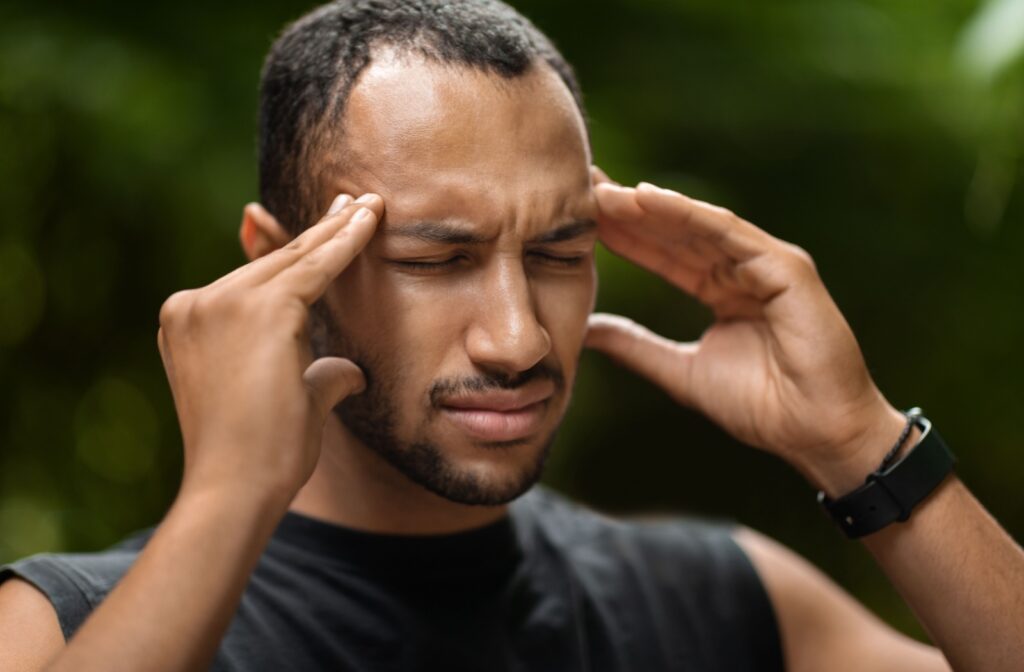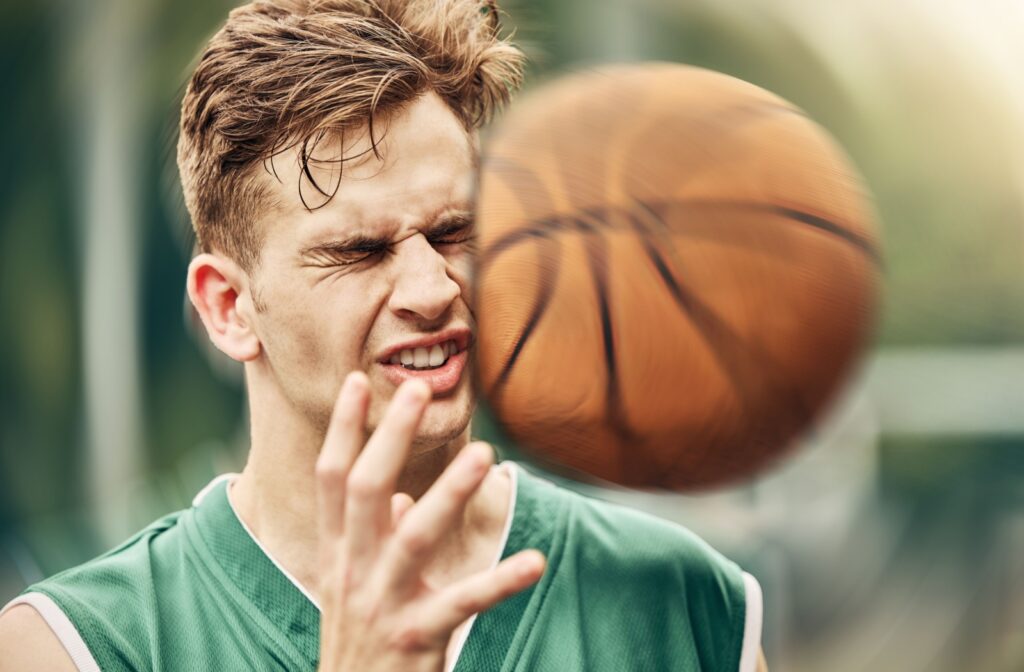Eye issues are a surprisingly common consequence of head trauma, and understanding why they occur can make a big difference in managing recovery. Head injuries, whether mild or severe, can cause damage to various parts of the body—including your eyes, leading to temporary or lasting vision symptoms.
An eye exam is usually necessary to assess visual skills and determine if vision therapy can help. We explore the connection between head injuries and eye problems, the symptoms to look out for, and recovery tips to help you see better.
The Connection Between Head Injury & the Eyes
How exactly does a head injury cause eye problems? The answer lies in the close relationship between your brain and your eyes. While your eyes capture visual information, your brain interprets and processes it to form clear images.
Injury to the head can disrupt this process in several ways:
- Direct injury to the visual venters: Specific areas of the brain, like the occipital lobe, are responsible for interpreting visual data, distance and depth perception, color, object and face recognition, and memory. Damage to these areas can lead to significant vision changes.
- Nerve damage: The optic nerve connects your eyes to your brain, and trauma can cause optic nerve damage and lead to functional impairment of vision.
- Disrupted eye-brain coordination: Your eyes rely on precise communication with your brain to move, focus, and process images. A head injury can cause a disconnect, leading to vision symptoms.
Understanding these mechanisms helps explain why head injuries often result in visual challenges.
Common Eye Problems Post-Head Injury
Head injuries are often associated with visual impairments, but their symptoms can vary depending on the severity and location of the damage. Here are some of the most common eye-related issues people with head injuries experience.
Concussion-Related Vision Symptoms
Concussions, caused by a blow to the head, frequently result in visual disturbances. This might include blurry vision, double vision, difficulty focusing on objects, difficulty concentrating, and depth perception issues.
Sensitivity to Light
Many head injury survivors experience increased sensitivity to bright lights. This symptom, known as photophobia, often leads to discomfort or headaches in well-lit environments.
Difficulty Tracking Moving Objects
Eye movement coordination can be disrupted after a head injury, making it hard to follow moving objects or switch focus between near and far distances. This difficulty can be especially troubling for tasks like reading or driving.
Visual Field Loss
Loss of vision in certain parts of your field of view can occur if specific areas of the brain responsible for processing visual information are affected by a head injury.
Eye Pain or Strain
Persistent headaches or discomfort behind the eyes is another common complaint after head trauma. This often results from prolonged attempts to focus or compensate for other vision issues.

Recovery Tips for Better Vision After a Head Injury
Recovering from head trauma can be a long road, but taking care of your eyes during this time is essential. Here are some practical tips to help you regain vision clarity.
Give Yourself Time to Heal
Rest is one of the most important factors in recovering from a head injury. Avoid activities that strain your eyes—like staring at screens for extended periods—when symptoms peak.
Consider Vision Therapy
Vision therapy can be an effective, personalized approach to improving visual function after a head injury. A trained eye professional may guide you through various activities using tools designed to strengthen eye-brain communication.
Practice Eye Exercises
Exercises, like focusing on near and far objects or following a moving target with your eyes, can help improve eye coordination and focus over time. However, always consult your eye doctor before starting exercises at home to make sure they’re safe and effective for your condition.
Reduce Bright Light Exposure
If you’re struggling with light sensitivity, try wearing blue light-blocking glasses or sunglasses in bright environments. Adjust the brightness settings on your devices and take regular breaks to avoid eye strain.
Seek Professional Help
Your eye doctor is an important part of your head injury or concussion team. If you’ve already seen your eye doctor but your symptoms persist or significantly impact your life, don’t ignore them. Visit your eye doctor to monitor your vision and treat vision impairments. They can also help determine when it’s safe to return to work, school, or sports.
Restore Essential Visual Skills
Dealing with vision issues after a head injury can feel overwhelming, but you don’t have to navigate recovery by yourself. Treatments and therapies are available, and many people see significant improvements with time and care.
If you’re struggling with eye problems following a head injury, book an appointment with Total Vision Campbell for custom vision therapy to help you regain essential visual skills.



